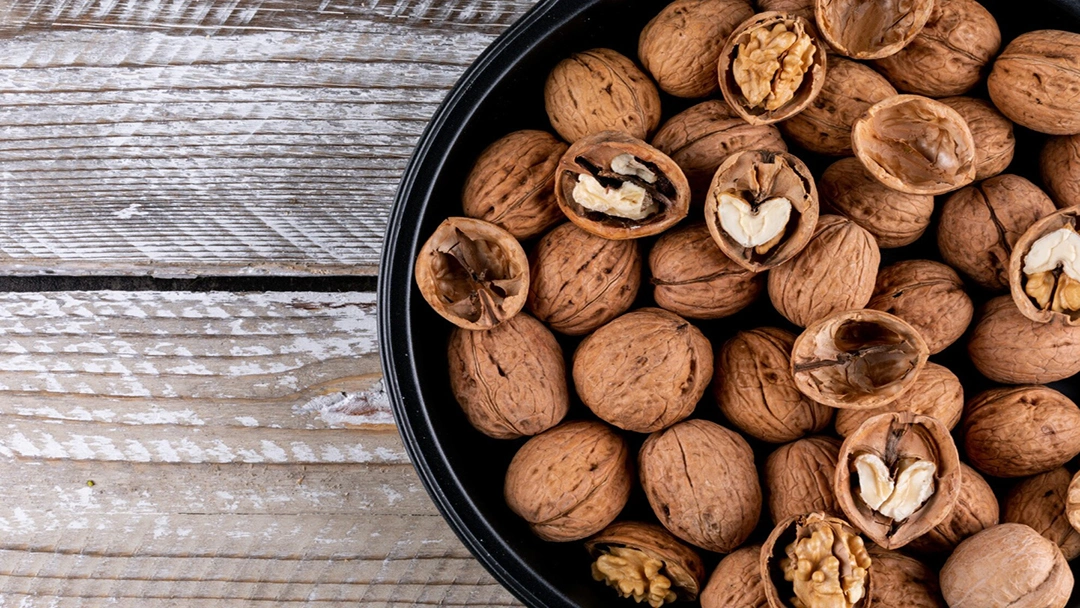Changes to Digestive Bacteria
You probably know that there are myriads of useful bacteria living in our stomachs and all over our digestive system.
These are not just useful, but the lack of some of them will incur irremediable damage to our bodies. When you change your eating habits from high fibre and high carbohydrates to the Carnivore diet, which focuses on almost no carbs, the arrangement of these useful bacteria changes significantly.
Those bacteria eating carbs will probably disappear for good, but those eating fat will multiply.
This process of dying and multiplying takes some time, resulting in slow bowel movement and constipation.
Learn More: Carnivore Diet Constipation: Fix Carnivore Diet Poop Problem
[cta-gocarnivore-plans]
Bile Production
As a necessary digestive fluid, Bile helps fat digestion. When you eat a certain amount of fat, Gallbladder and liver release Bile to emulsify the fat and break it down.
This process takes some time, which can result in slow bowel movement and constipation.
Stomach Acidity
Stomach acid is a powerful solvent that helps break amino acids in proteins, i.e., digest protein.
Like other body processes, this process takes some time as the body tries to increase stomach acidity to digest more meat consumed on a Carnivore diet.
The more meat you eat, the more stomach acid your body will need to produce, which means higher activity in the digestive system and slower bowel movement and constipation.
Nutrient Deficiencies
If you've had nutrient deficiencies before going on a Carnivore diet, your body may have a harder time adjusting to the new diet situation.
It's essential to take care of vitamin deficiencies before going on a Carnivore diet, especially after knowing that about 90% of Americans currently suffer from Vitamin D deficiencies.
[cta-meetings]
So, as mentioned earlier, not every late defecation is constipation. But how do we know exactly if we are experiencing constipation on a Carnivore diet?
The symptoms introduced in the following section will help us understand if we have Carnivore diet constipation.
"Many people find that their digestion actually improves over time on a Carnivore Diet, despite initial concerns about constipation."
Learn More: 10 Most Important Carnivore Diet Supplements
The Symptoms of Carnivore Diet Constipation
- Infrequent Bowel Movements: If you spend many days without pooping and it takes longer than before
- Hard and Dry Stools: If it's hard to poop and it's too drier and harder than before
- Pain during Bowel Movements: If you experience pain or spot drops of blood while passing stools or try so hard to poop
- Incomplete Defecation: Feeling like your bowel movements are incomplete
- Abdominal Discomfort: If you experience minor headaches, stomachache, bloating, too much gas, cramping, feeling full all the time, or general discomfort in the abdomen
So, what does fiber have to do with all this? Do we need to use fiber on a Carnivore diet? The following sections will elaborate on the role of fibre and the Carnivore diet constipation.
Learn More: Poop on the Carnivore Diet: All You Need to Know
[cta-meal-plan]
Carnivore Diet and Fiber
Let's start with shedding some light on the myths about fiber. The most important thing to know is that low levels of fibre don't necessarily lead to constipation.
Surprisingly, a study published in the World Journal of Gastroenterology in 2012 revealed that fiber may cause constipation, and reducing it can alleviate constipation symptoms [1].
The study concludes that "the previously strongly-held belief that the application of dietary fiber to help constipation is but a myth".
Also, it has been shown that stopping the intake of dietary fiber significantly improves constipation. Additionally, fiber is indigestible and our gut bacteria ferment it in our bodies , which results in the production of aldehyde, alcohol, methane, gas, and heat. This heat can damage nearby organs, including the reproductive ones [2].
So, you won't need to worry about avoiding fiber as much as you did before!
But, anyhow, if fiber works for you and you want to take some on a Carnivore diet, the following section introduces the best animal-based fiber sources.
Water and Fat Can Cure Constipation
Research published in the Journal of Human Nutrition and Dietetics showed that 60% of participants on a Carnivore Diet who initially experienced constipation found relief by increasing their water intake and dietary fat.
How to Get Fiber on the Carnivore Diet?
Getting fiber on a Carnivore diet doesn't look easy as the diet is based on animal products low in fiber.
But the following animal-based foods are good sources of fiber.
- Organ Meats: Organ meats, including the liver and kidneys, contain some fiber.
- Bone Broth: Bone broth is rich in gelatin, which provides small amounts of dietary fiber.
Fiber stories aside, the important question is how to avoid constipation on a Carnivore diet.
[cta-gocarnivore-plans]
How to Avoid Carnivore Diet Constipation?
Here are the magical tips and tricks to solve Carnivore diet constipation problems.
Eat More Fat
Fat is one of the best facilitators of bowel movements. You can also fat fast to get the best results. Learn more about fat fasting on a Carnivore diet. Consuming fatty cuts of meat, fatty fish, and healthy fats can alleviate constipation symptoms on a Carnivore diet.
Take Protein in Moderation
Too much protein can cause constipation. So, balance your protein intake based on your body's reactions to avoid constipation caused by consuming too much protein.
Sleep Enough and Reduce Stress
You may neglect the magical effect of enough sleep and stress management on digestion and bowel movements. The digestive system is one of the first body systems to get disrupted by stress and anxiety.
Drink Enough Water
Water can facilitate bowel movements and calm the digestive system. Carnivore dieters need to drink plenty of water daily because of their high meat intake, which takes a lot of body water.
[cta-meetings]
Exercise
Regular physical activities, including walking or jogging, help bowel movements and improve digestion.
Electrolyte Balance
Electrolytes are essential for muscle function. Balance electrolytes like sodium, potassium, and magnesium for healthy bowel movements.
Now, you may wonder what foods exactly improve or worsen constipation. It's essential and super useful to know, as you can simply manage your foods to avoid constipation.
No Constipation after Transition Period
According to a study from the Journal of Clinical Gastroenterology, 80% of long-term Carnivore dieters reported regular bowel movements and no significant issues with constipation after adapting to the diet for three months.
Foods to Eat to Avoid Constipation
When following a carnivore diet and aiming to avoid constipation, there are specific animal-based foods you can include to support bowel regularity. While these foods are low in fiber compared to plant-based options, they can still provide some beneficial nutrients for digestive health. Here are some foods to consider:
- Organ meats, including liver, kidney, heart, etc. They're also rich in Vitamin C. Maximise The Intake of Vitamin C on a Carnivore Diet.
- Fatty cuts of meat, including ribeye, pork belly, or chicken thighs, are good for the digestive system because of higher fat, which softens the stool.
- Bone broth
- Butter, ghee and other kinds of fat
- Eggs
- Dairy products like full-fat milk, cheese, or cream
[cta-meal-plan]
Foods Not to Eat to Avoid Constipation
- Processed meats like sausages, deli meats, and cured meats contain high levels of additives and preservatives that can disrupt bowel movements and the digestive system in general.
- Lean cuts of meat are lower in fat content and higher in protein levels, and excess amounts of protein can cause constipation.
- Low-fat dairy products, such as skim milk or low-fat cheese, may be less beneficial for bowel movements.
- Hard cheeses like cheddar or parmesan can be harmful to some individuals, as they contain less fat content.
So, if you've taken all the precautions but still experience Carnivore diet constipation, you need to carefully read the following two sections.
How Long Does Constipation Last on a Carnivore Diet?
There isn't a set period for Carnivore diet constipation, it varies from person to person, and it depends on various factors, including individual body compositions, eating habits, hydration, general health, and other lifestyle factors.
However, constipation on a Carnivore diet is usually a short-term problem that your body faces while adjusting to the new dietary approach.
The critical point is that you must take care of it in its early days to avoid serious digestive issues, as prolonged constipation can be caused by an underlying issue that needs medical care.
So, to take care of the Carnivore diet constipation once and for all, you need to follow the step-by-step guide below.
[cta-gocarnivore-plans]
How to cure Carnivore Diet Constipation?
- Drink More Water: You need to drink "at least" 8 glasses of water daily. The more water you drink, the lower the odds of constipation. But listen to your body, and see how much more or less suits you.
- Consume More Fat: Eating fattier cuts of meat or healthy animal oils improve bowel movements.
- Consume Organ Meats: Eating more organ meats like liver, kidney, or heart, which contain nutrients like vitamin C and choline, can improve digestion and bowel movements.
- Manage Dairy Consumption: Dairy products can be constipating for some. So, adjust the amount you need to avoid constipation.
- Be More Physically Active: Go walking and jogging, or do strength training.
- Balance Electrolytes.
- Consult healthcare professionals if constipation persists or becomes severe.
Summary
Carnivore diet constipation can happen to those experiencing this diet while their body tries to adjust to new situations.
Also, studies have revealed that fiber is not that necessary for a healthy digestive system, and it may even disrupt its function in some cases.
This article tried to shed some light on every important thing about Constipation on a Carnivore diet to help you stay healthy while trying to reach your fitness goals.
The information provided in this article is based on the recent academic research, but not a substitute for medical consultation by any means. Please consult a healthcare professional if you have any medical problems.
FAQ
The following questions and answers will help you wrap your heads around the Carnivore diet constipation topic.
How Do You Get Fiber on a Carnivore Diet?
Eat organ meats, bone broth, and some supplements to take the amount of fiber you may need on a Carnivore diet.
Why You Don't Need Fiber on a Carnivore Diet?
Fiber has proven to be not that effective to the digestive system's health, and some studies have even shown its adverse effect on bowel movements.






























